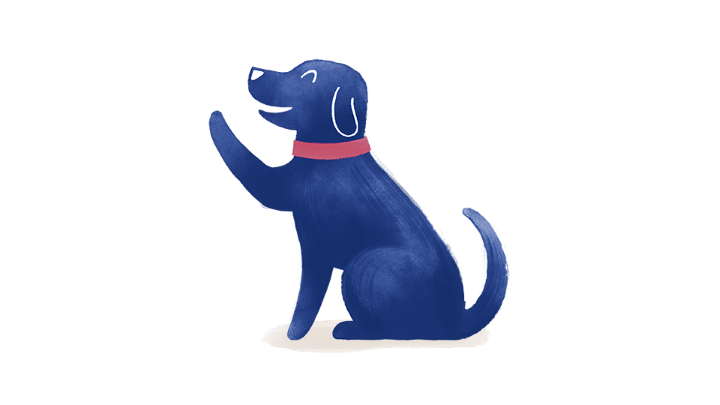Arthritis In Dogs
Arthritis can affect dogs at any age, but it usually occurs as they get older. Learn how to spot the signs and adapt your care.

What is arthritis in dogs?
Arthritis is a common problem for many dogs and refers to inflammation of their joints, which causes pain, discomfort and stiffness.
Inside their joints, the surface of the bone is usually covered with a thin layer of smooth cartilage and lubricated with a small amount of fluid, which allows the joint to move freely and without friction.
Osteoarthritis in dogs
Arthritis occurs when the joint is damaged or its naturally smooth surface changes, resulting in the rough bone rubbing together. Not only is this very painful for your dog, it also further damages the cartilage and causes new bone to form around the joint, making it stiffer and limiting movement. This is called osteoarthritis, or degenerative joint disease.
What causes arthritis in dogs?
Just like humans, dogs generally develop arthritis as they get older due to general wear and tear on the joints. However, it can occur at an early age if the bone or joint doesn’t develop properly, as in the case of hip and elbow dysplasia. Certain breeds are also more at risk, including Labradors, Springer Spaniels, German Shepherds and Rottweilers. Injuries often also lead to arthritis later in life.
Signs and symptoms of arthritis in dogs
Arthritis is a progressive disease and symptoms develop and worsen over time. You may notice your dog slowing down and taking it easier when out and about on walks. They may also become reluctant to play or go up and down stairs, and they might struggle to get up after long periods of rest.
The condition becomes worse in cold weather, so if they appear stiff or slow or yelp out in pain during the winter months, this could be a sign of arthritis.
Other symptoms of arthritis in dogs include:
- Limping or lameness
- A stiff walk that is worse when first waking up
- Groaning or caution when lying down or getting up
- Being wary of joints being touched
- Tiredness
- Irritability
- Licking or chewing at joints
If you think your dog may be showing signs of arthritis, speak to your vet for a complete health check and advice. They may recommend further x-rays or other scans to diagnose the condition.

Treatment for arthritis in dogs
There’s no cure for arthritis, but you can improve your dog's quality of life by managing the pain with new generation medications such as monoclonal antibody injections, anti-inflammatories, painkillers and alternative therapies, such as hydrotherapy, laser therapy, massage and acupuncture. These can help relieve stiffness and improve mobility to support the surrounding muscles. In some cases, surgery (including joint replacement surgeries) can help but it’s unlikely to restore perfect joints for life. New stem cell therapy is also becoming more readily available, with seemingly promising results.
How to alleviate the pain in your dog's joints
Alongside pain management, there are a few ways you can help alleviate pain and manage your dog’s arthritis. Providing a balanced, high-quality diet and maintaining a healthy weight with gentle exercise can reduce pressure on the joints and keep them moving. Your vet will happily advise you on the best exercise for your pet, but little and often is likely to be your best bet. If your dog is limping, they’ve probably overdone it and need to rest.
Ensuring they have a soft, comfortable bed in a warm, draft-free spot will support their aching joints while they’re asleep – orthopaedic beds are a great option. A ramp up the staircase or into the car will eliminate the need for them to jump up or down. Tiled and laminate floors can be slippery and difficult to navigate for arthritic dogs, so lay rugs and mats down or use dog-friendly paw wax to give them more grip and prevent falls.
If you are worried that your dog may have arthritis speak to your local Medivet practice who will be able to advise on this.

Senior Dog Healthcare Plan
Our senior healthcare plan includes all the benefits of the adult plan, plus a few extra checks to help keep your dog stay healthy and thriving in their older years.
Learn more

